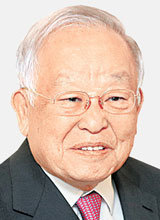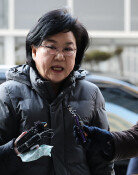KEF chairman calls on next administration to ensure labor reform
KEF chairman calls on next administration to ensure labor reform
Posted March. 28, 2022 08:04,
Updated March. 28, 2022 08:04

Korea Enterprises Federation (KEF) Chairman Sohn Kyung-shik told The Dong-A Ilbo last Thursday that one of the forthcoming administration’s most critical missions is to achieve labor reform, saying, “The government should not sit on its hands to resolve labor reform. Just as Britain and Germany, the government needs to take aggressive action.” He has recently started his third term as the representative of the KEF.
Explaining the rationale behind labor reform, Mr. Sohn said, “Laws regarding labor issues were written at a time when workers stood in a weaker position than businesses so this is why they focus primarily on protecting rights of workers.” He emphasized why these relevant regulations should be revisited as workers have a stronger say than they did with rebalance of power in practice, adding, “It is an inevitable project to reform the labor market to address issues arising from the situation where only permanent workers at larger businesses benefit while the remainder of the labor market is left underprivileged.”
Chairman Sohn highlighted that the outdated labor regulation system should be revised to adapt to a newly emerging era, taking the game industry as an example. “No one would have imaged what the game industry would be like when labor laws were set up,” he said. “The regulation platform needs to change according to new industries rising on the horizon”
“The Gen MZ, those born between 1980 and 2010, demands return for contributions that they make and that makes much sense to me,” he said. “We are aware of many requests of reform to the payment system based on seniority that labor unions of workers at large companies insist on maintaining.”
Mr. Sohn pointed out that businesses are faced with too many punitive regulations, saying, “The KEF estimates that there are around 400 punitive clauses against businesses based on research on normal administrative regulations.” Giving an example of the Serious Accidents Punishment Act enacted this January, Sohn argued that the act is solely focused on punishment although it is originally supposed to help prevent accidents. “There is considerable question about the nature of the act in question if all it does is intimidate businesses rather than encouraging them to invest in safety improvement.”
Critical of the current administration, the KEF chairman said, “It tends to favor labor unions in many aspects, making it hard for businesses to voice their opinions.” He pointed out the collective conversion of temporary workers to permanent employees in government-led organizations despite impracticalities, the sharp rises in the minimum hourly wage, etc.
will@donga.com




![반찬통 착색 고민 끝…‘두부용기’ 버리지 말고 이렇게 쓰세요 [알쓸톡]](https://dimg.donga.com/c/138/175/90/1/wps/NEWS/IMAGE/2026/01/09/133126593.3.png)

![“생수병, 버리지 말고 자르자”…주방 밀폐 용기 끝판왕 [알쓸톡]](https://dimg.donga.com/c/138/175/90/1/wps/NEWS/IMAGE/2026/01/06/133101939.3.png)
